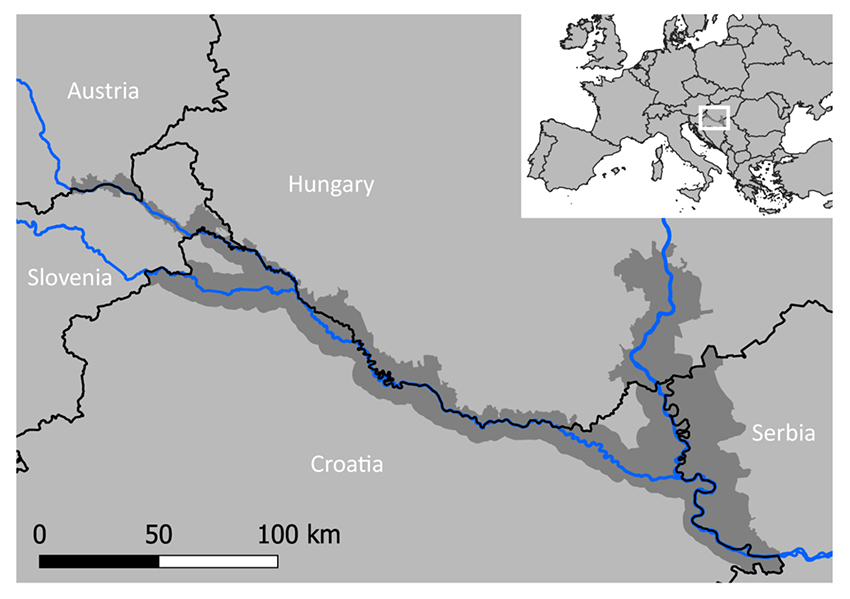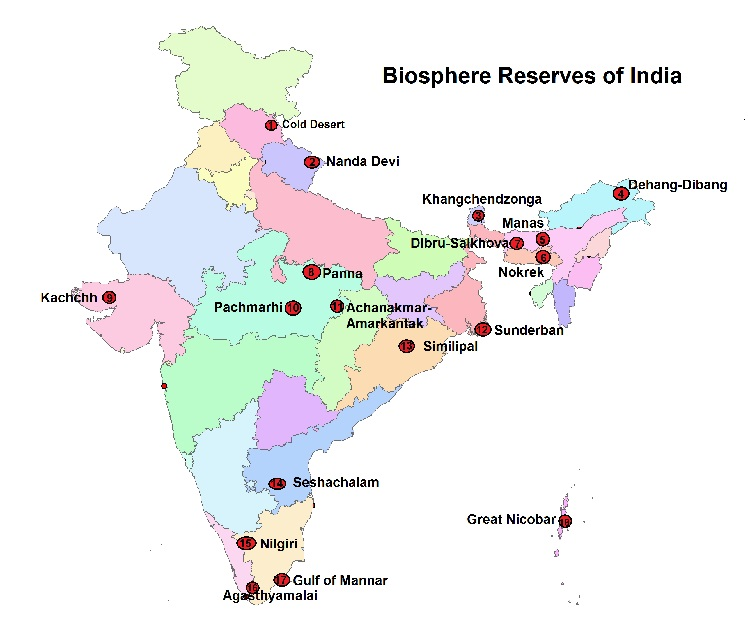Biodiversity & Environment
World’s First ‘Five-Country Biosphere Reserve’
- 17 Sep 2021
- 4 min read
Why in News
Recently, Mura-Drava-Danube (MDD) was declared as the world’s first ‘five-country biosphere reserve’ by the United Nations Educational, Scientific and Cultural Organization (UNESCO).
Key Points
- About MDD:
- The biosphere reserve covers 700 kilometres of the Mura, Drava and Danube rivers and stretches across Austria, Slovenia, Croatia, Hungary and Serbia.
- The total area of the reserve is a million hectares - in the so-called ‘Amazon of Europe’, which is now the largest riverine protected area in Europe.
- The biosphere “represented an important contribution to the European Green Deal (climate action plan) and contributed to the implementation of the EU Biodiversity Strategy in the Mura-Drava-Danube region.”
- The strategy’s aim is to revitalise 25,000 km of rivers and protect 30% of the European Union’s land area by 2030.
- Importance of the MDD:
- The area is one of the richest in Europe in terms of species diversity.
- It is home to floodplain forests, gravel and sand banks, river islands, oxbows and meadows.
- The area is home to the highest density in Europe of breeding pairs of white-tailed eagle and endangered species such as the little tern, black stork, otters, beavers and sturgeons.
- It is also an important stepping stone for more than 2,50,000 migratory waterfowls every year.
Biosphere Reserve (BR)
- About:
- BR is an international designation by (UNESCO) for representative parts of natural and cultural landscapes extending over large areas of terrestrial or coastal/marine ecosystems or a combination of both.
- BR tries to balance economic and social development and maintenance of associated cultural values along with the preservation of nature.
- BRs are nominated by national governments and remain under the sovereign jurisdiction of the states where they are located.
- These are designated under the intergovernmental MAB Programme by the Director-General of UNESCO following the decisions of the MAB International Coordinating Council (MAB ICC).
- The Man and the Biosphere (MAB) Programme is an intergovernmental scientific programme that aims to establish a scientific basis for enhancing the relationship between people and their environments.
- Their status is internationally recognized.
- There are 727 biosphere reserves in 131 countries, including 22 transboundary sites.
- Three Main Zones:
- Core Areas: It comprises a strictly protected zone that contributes to the conservation of landscapes, ecosystems, species and genetic variation.
- Buffer Zones: It surrounds or adjoins the core area(s), and is used for activities compatible with sound ecological practices that can reinforce scientific research, monitoring, training and education.
- Transition Area: The transition area is where communities foster socio-culturally and ecologically sustainable economic and human activities.
- Biosphere Reserves in India:
- Presently, there are 18 Biosphere Reserves in India, among which 12 Biosphere reserves in India find their place in UNESCO’s List of Man & Biosphere Reserves Programme.
- The latest included under the MAB was ‘Panna Biosphere Reserve’ (Madhya Pradesh).
- Presently, there are 18 Biosphere Reserves in India, among which 12 Biosphere reserves in India find their place in UNESCO’s List of Man & Biosphere Reserves Programme.








